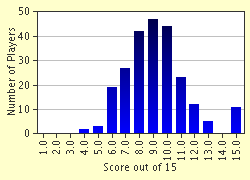Quiz Answer Key and Fun Facts
1. True or false: Sartre wrote 'Republic' in 380 B.C.
2. True or false: Henry David Thoreau believes that an individual's only obligation is to do what he or she feels right.
3. True or false: Sir Thomas More was the first person to use the word 'Utopia'.
4. True or false: Plato believes that it is acceptable for a person to have more than one occupation.
5. True or false: Plato does not include women in his definition of 'society'.
6. True or false: Sir Thomas More wrote 'Utopia' in the late 1600s.
7. True or false: Henry David Thoreau believes that government is a large machine and that citizens are its 'parts'.
8. True or false: According to a quote from Plato's "Republic" ("Now, the first and greatest of necessities is ..."), the needs of society include food, clothing, and government.
9. True or false: Henry David Thoreau wrote 'Civil Disobedience' in 1849.
10. True or false: In Sir Thomas More's 'Utopia', people may either work or improve their minds, nothing else is an acceptable use of time.
11. True or false: Plato believes that his society would be self-sufficient and would not need to trade with other societies for necessities.
12. True or false: Sir Thomas More believes that a government and a constitution are necessary to control what and how much people produce.
13. True or false: Henry David Thoreau says that while government is flawed, it doesn't usually get in the way of progress.
14. True or false: In Sir Thomas More's 'Utopia', women could do any job they choose.
15. True or false: Plato believes that a society will grow when its needs are not being satisfied by its original citizens.
Source: Author
flitwick
This quiz was reviewed by FunTrivia editor
looney_tunes before going online.
Any errors found in FunTrivia content are routinely corrected through our feedback system.

